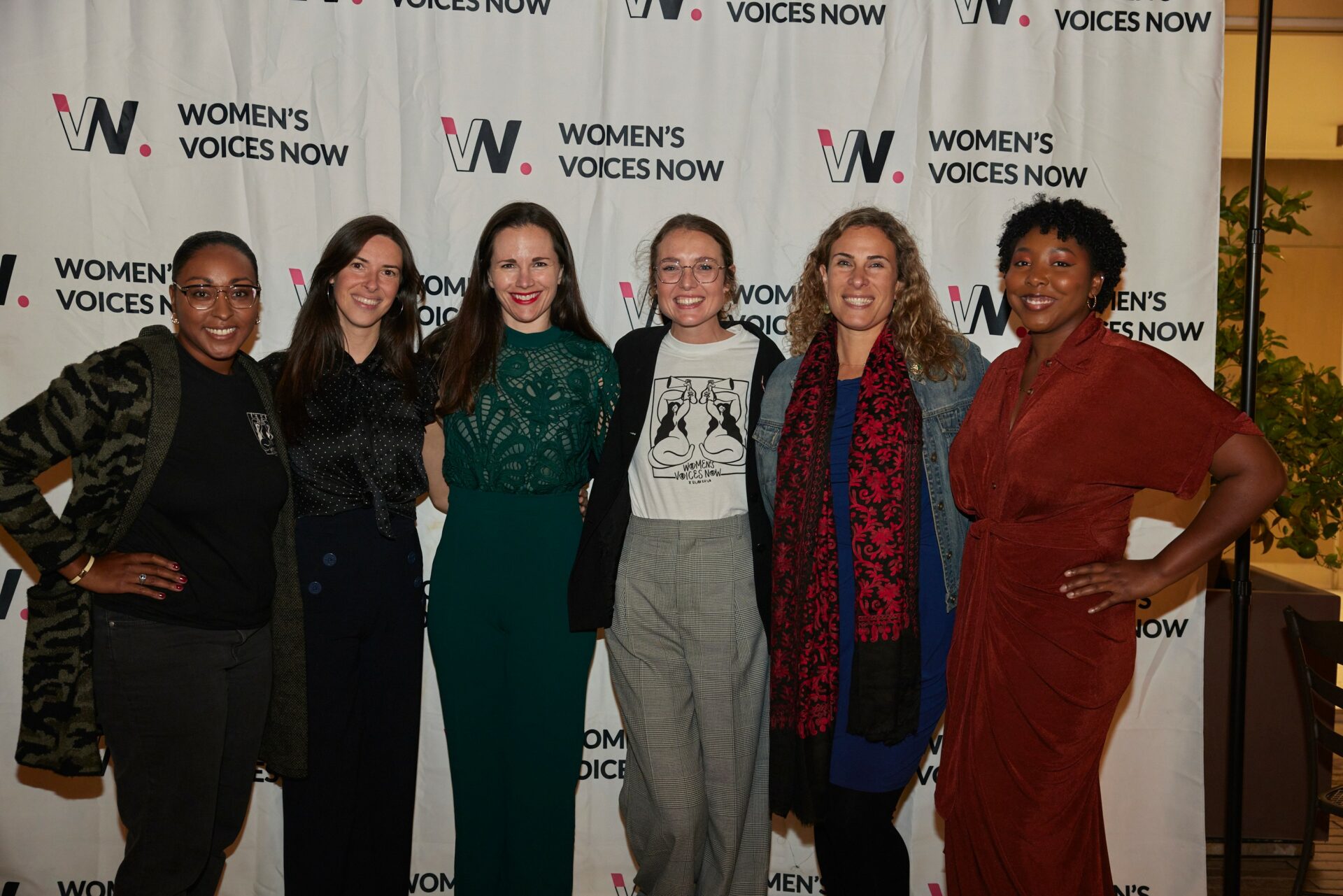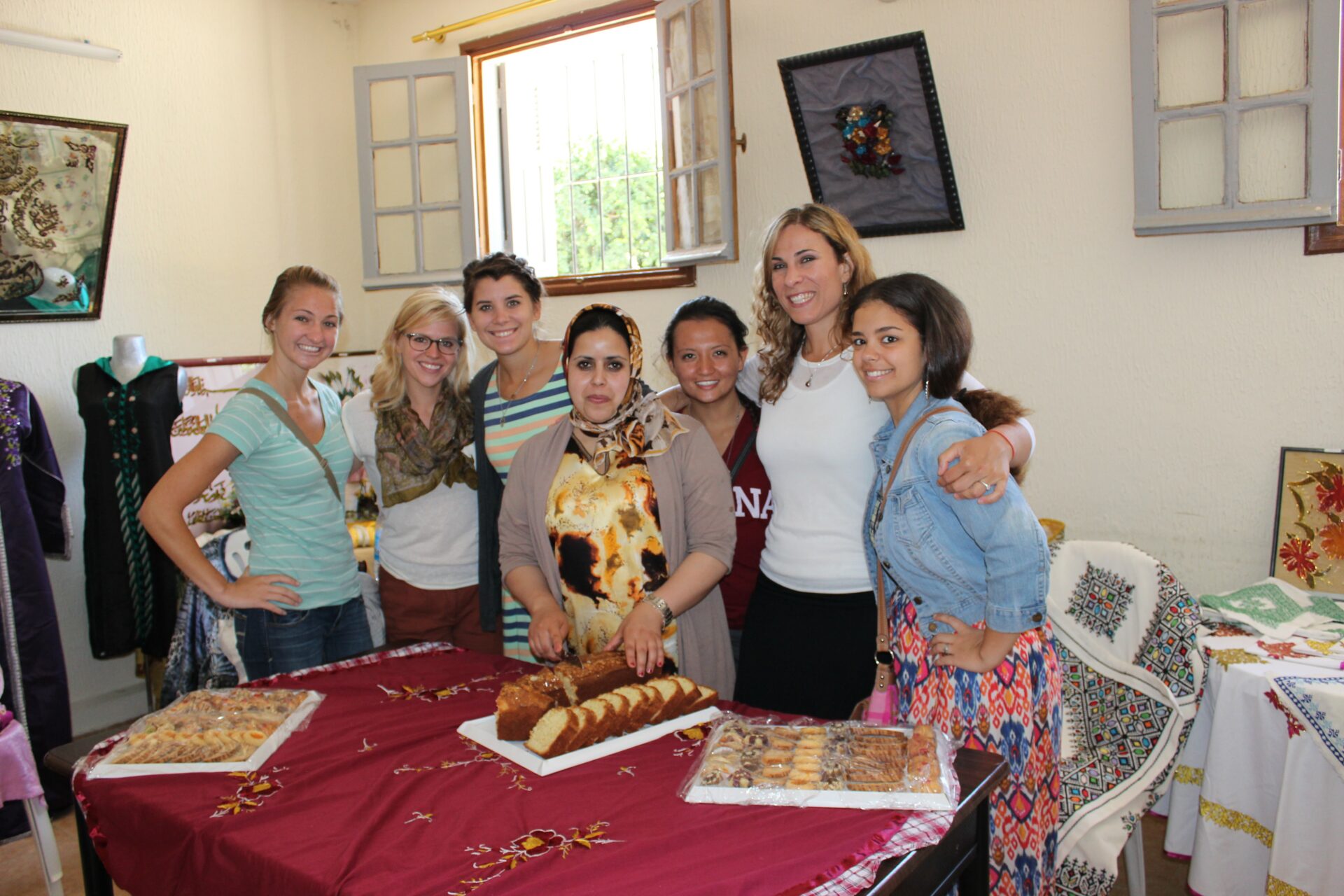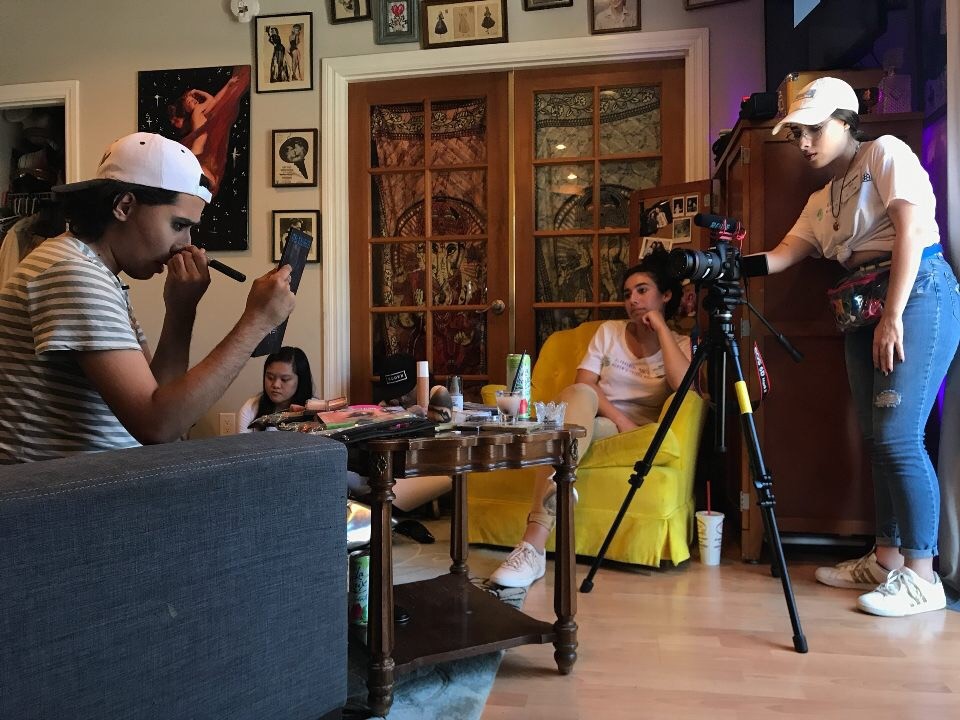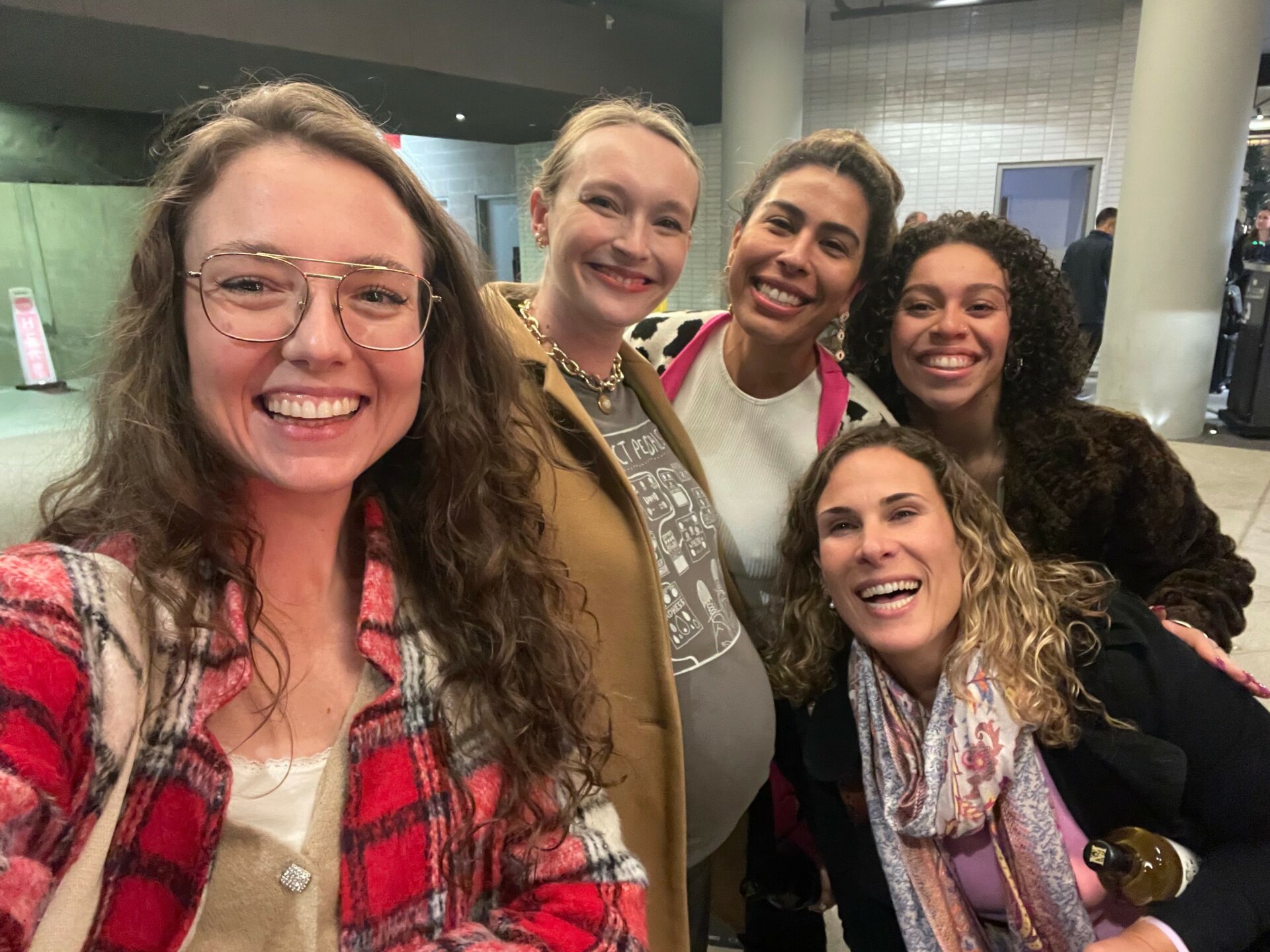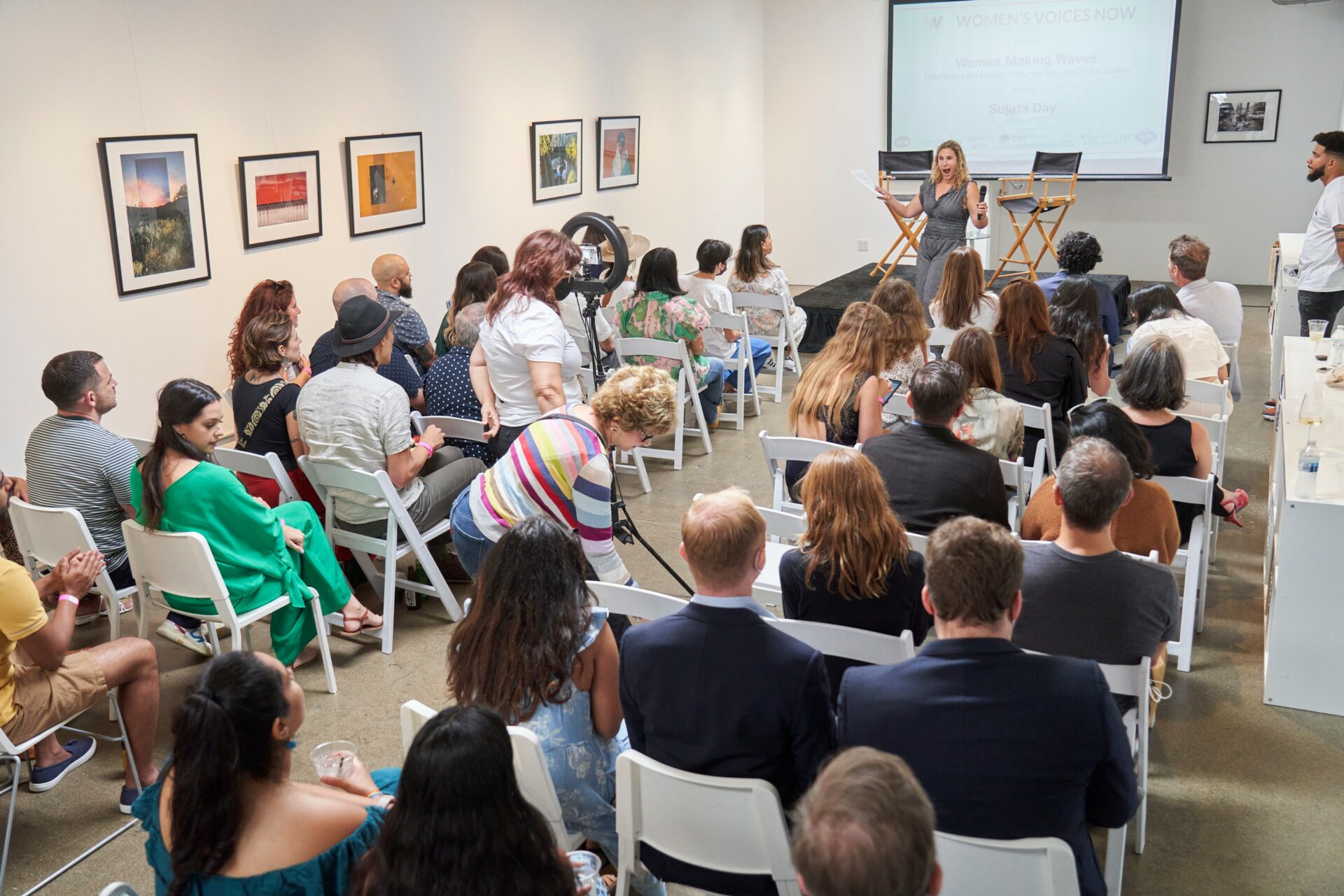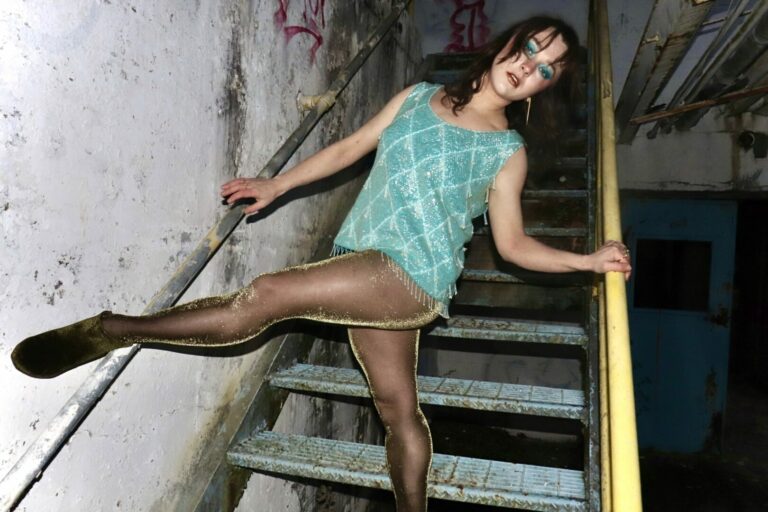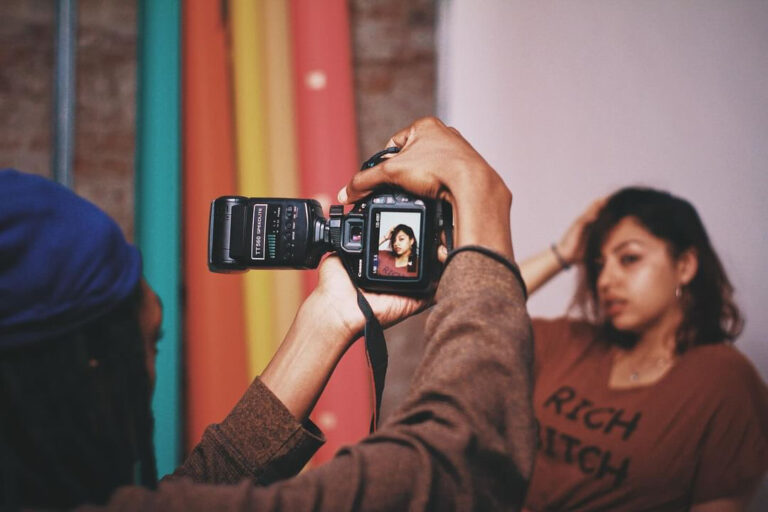We caught up with the brilliant and insightful Heidi Basch-Harod a few weeks ago and have shared our conversation below.
Hi Heidi, thank you for being such a positive, uplifting person. We’ve noticed that so many of the successful folks we’ve had the good fortune of connecting with have high levels of optimism and so we’d love to hear about your optimism and where you think it comes from.
Right now is a particularly dark time in the world and so I have decided to challenge myself in reflecting upon the question of where my optimism comes from. Just as trauma is intergenerational, I think that resilience and optimism are too. You see, I come from Sicilian fishermen and shepherds who escaped poverty and the mafia on one side of my family, and farmers and survivors of the Holocaust from the Carpathian foothills on the other. My grandparents, on both sides but for different reasons, had to make the great journey across the Atlantic Ocean, from Europe to the United States in the 1940s and 1950s. With no wealth and, for my Holocaust-survivor grandparents — having lost their sense of self and self-worth, they arrived in the United States with nothing, materially speaking. On a spiritual level, from the success they fought and sacrificed for, they clearly believed that they deserved a life of dignity, love, family, purpose, and the pursuit of their dreams. And that is something I gained from them, the idea that impossible can become possible. It comes from saying “yes” when an opportunity presents itself, even if you don’t (yet) have all the skills needed for the job. It comes from surrounding yourself with others who are a little farther along their journey than you are, and seeing that it can be done in time. It comes from believing in a little bit of magic, and whispering a prayer when your heart is bursting with it. I think it’s also about making a choice. To live a life without optimism, hope, and the stubborn belief that we can work toward something better, sounds completely uninteresting and depressing. Choosing optimism means once in a while getting a hit of the wonder that is always around us, waiting to be recognized.
Thanks, so before we move on maybe you can share a bit more about yourself?
My professional path was forged from a very young age. I was about 10-years-old, in the 6th grade. My grandfather came to my school to tell his story of surviving the Holocaust. I remember laying in my bed that night, reflecting on all that I had heard — how he lost his family, his sense of security, was a hunted animal until captured and deported to one then another concentration camp, and had to survive near starvation, lice, typhoid fever, freezing cold temperatures, and temperamental Nazi soldiers. His parting message with students with whom he shared his story was the need for us to be each other’s keepers. That we need to see ourselves in others, recognize our shared humanity, and that is what will keep us from perpetuating the worst capabilities of humankind. So I resolved to, vaguely, make the world a better place. My high school years were filled with various social action projects and initiatives within the framework of the youth group at my synagogue. When I arrived at university, UC Berkeley to be specific, I gravitated toward women’s rights causes — becoming familiar with how much the world stands to gain if and when women are treated equally and are afforded the same opportunities as men — economically, politically, socially, and educationally.
At the age of 25 I moved to Israel, where I earned a Master’s Degree in Middle Eastern and African History. I threw myself into the history of women’s rights movements in the region – of Iran, Egypt, Morocco, and then of the Kurdish women of Turkey. The resilience, the creativity, the determination of these women — with centuries of oppression weighing them down, they persist. When I moved home in 2012, I met the founder of Women’s Voices Now, a non-profit organization whose mission is to use film to promote social change to advance girls’ and women’s rights globally. He offered me the chance to serve as Executive Director, and 11 years later, I have been blessed to work with hundreds of mostly female filmmakers and changemakers from around the world, and to build community amongst these courageous individuals who believe in their dreams.
Looking back, what do you think were the three qualities, skills, or areas of knowledge that were most impactful in your journey? What advice do you have for folks who are early in their journey in terms of how they can best develop or improve on these?
The three skills that have been most useful and impactful on my journey are active listening skills, always having a beginner’s mind, and taking the time to get to know people. Each individual is a world unto themselves and what a delight it is to really get to know a person and all of their complexities, and to find connection points. Having a beginner’s mind means being humble and to acknowledge that there is something to learn from everyone. Lastly, taking the time to get to know someone, this is relationship building and life is full of relationships. This is some of the most difficult work we need to do, but it is also the most rewarding. Without healthy relationships there cannot be community and without community one cannot mobilize to create change. In my line of work, getting folks to change their minds and attitudes around the roles and rights of women and girls is only possible through trusting, authentic relationships.
To close, maybe we can chat about your parents and what they did that was particularly impactful for you?
The most impactful thing my parents did for me was supporting my pursuit of higher education. In going to university, my world became enormous and delightfully complicated. Moving away from home and discovering myself without the expectations and patterns of my family allowed for me to find the ways to do the things I am here to do. At the same time, I always knew that if I needed a place to catch my breath and recalibrate, I always had a place in their home. I wish everyone had the benefit of such a sturdy foundation, it really helps and it is something I hope to always be able to provide my children with too.
Contact Info:
- Website: https://www.womensvoicesnow.org/
- Instagram: https://www.instagram.com/womens_voices_now/
- Facebook: https://www.facebook.com/WomensVoicesNow
- Linkedin: https://www.linkedin.com/in/heidi-basch-harod-49b3135/
- Twitter: https://twitter.com/WomensVoicesNow
- Youtube: https://www.youtube.com/womensvoicesnow
